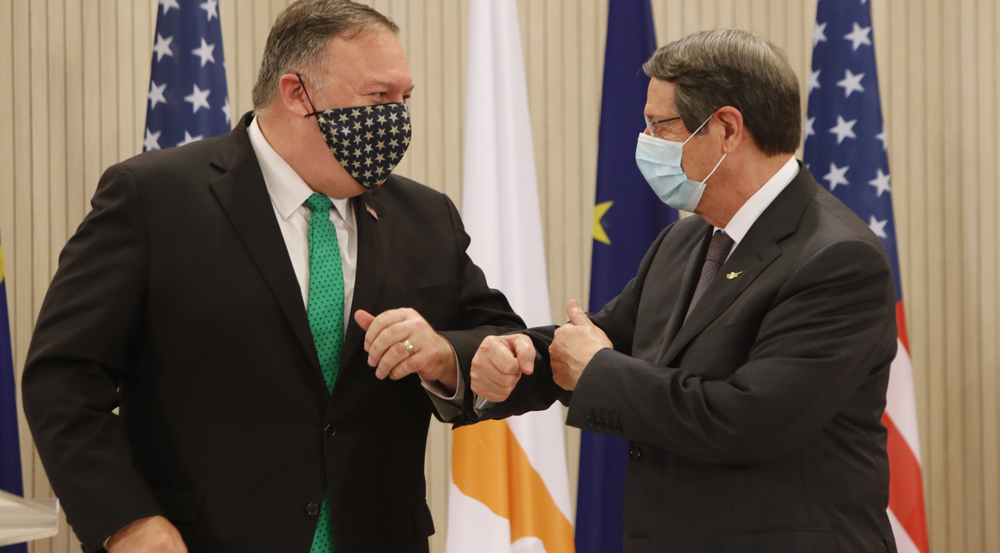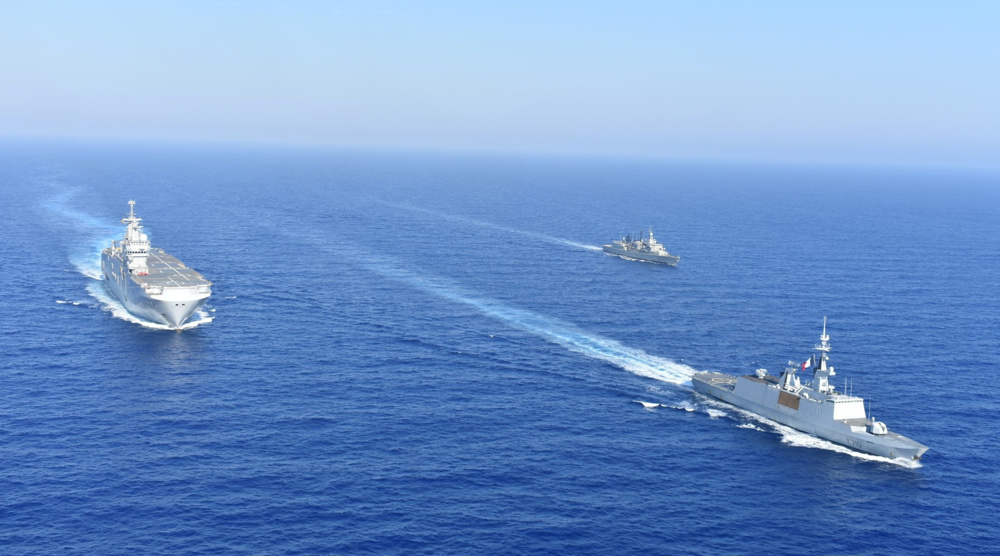Turkey complains Greece militarizing Chios; extends drilling activity off Cyprus
Turkey complains that Greece has been militarizing the island of Chios in a move that runs counter to a historic treaty, while at the same time, Ankara has announced the extension of drilling activity in the disputed Mediterranean waters.
The Turkish Naval Forces Office for Navigation, Hydrography and Oceanography (OHNO) made the announcement regarding the militarization of Chios in a navigational telex on Tuesday.
Chios is located across from Turkey’s Izmir province.
Turkey is opposed to Greece’s military deployment to islands in the Aegean Sea, considering it a provocation, and a threat to peace and security in the Eastern Mediterranean.
The rearming of the demilitarized Aegean islands has always been a thorny issue between the two neighbors. Turkey argues that under the 1923 Treaty of Lausanne, the final treaty concluding World War I, Greece has no right to militarize the Aegean islands.
Greece, however, cites the more recent 1936 Montreux Convention on Turkish Straits to defend its deployments. Turkey contests that argument too, saying the demilitarized status remains the same under the convention.
Also on Tuesday, Turkey issued a new maritime notice to extend the operations of an energy drilling ship in the disputed Mediterranean waters off Cyprus.
The new notice was issued for the Yavuz drilling ship, extending its operations until October 12.
According to the notice, Yavuz will be escorted by three other Turkish ships, and “all vessels are strongly advised not to enter” the area where they operate.
Cyprus has been divided since 1974, with the northern third run by a Turkish Cypriot administration recognized only by Turkey and the southern two-thirds governed by the internationally-recognized Greek Cypriot government.
Turkey is also involved in a dispute with Greece, which backs the internationally-recognized government in Cyprus. Tensions between Ankara and Athens spiked after Ankara resumed energy exploration work in a disputed area of the eastern Mediterranean last month. Turkey has withdrawn a seismic research vessel from waters disputed with Greece for maintenance, but ties have remained strained, and the dispute has drawn in the European Union (EU).
France in particular has been assertively supporting Greece, building up military presence in the dispute area and conducting joint exercises with the Greek military.
On Saturday, Turkish President Recep Tayyip Erdogan warned his French counterpart Emmanuel Macron “not to mess” with Turkey, as tensions between the two NATO allies deteriorated over the simmering standoff between Ankara and Athens.
Greece conditions talks with Turkey on ‘encouraging step’
Meanwhile, Athens announced on Tuesday that it was ready for talks with Turkey over disputed Mediterranean waters if Ankara continues “disengaging itself” from the crisis, after the withdrawal of its exploration vessel from the contested region.
“Turkey still has time — ahead of and after the (EU) summit — to continue the first encouraging step of disengaging itself from this crisis,” Greek Prime Minister Kyriakos Mitsotakis said following talks in Athens with European Council President Charles Michel.
“If we have tangible proof and this (proof) is continued, we are ready to start immediately — I stress that, immediately — exploratory talks with Turkey regarding our only major dispute: the demarcation of maritime zones” in the Aegean and the eastern Mediterranean, he said.
On Sunday, less than two weeks before EU leaders discuss the crisis, the Oruc Reis seismic research vessel returned to port, though Turkey said it would resume work after undergoing regular maintenance.
According to a Reuters report, Greek and Turkish military officials were also holding separate “de-confliction” talks at NATO headquarters on Tuesday. The meeting was one of a series of contacts intended to prevent any incident at sea spilling over into open conflict. However, it was not expected to address the actual dispute.
Tel Aviv tells Damascus Israeli forces will remain in occupied territory: Report
Dec. 22: ‘Axis of Resistance’ operations against Israeli occupation
‘Abhorrent’: Oxfam says only 12 trucks delivered aid in North Gaza since Oct.
VIDEO | Leader receives religious eulogists on Hazrat Fatima birth anniv.
Pope Francis slams Israel’s ‘machine-gunning’ of Gaza children
US hostage-taking of Iranian nationals violation of intl. law: Deputy FM
VIDEO | Carol Singers for Palestine on London’s Parliament Square
Ansarullah says ‘Israeli terrorists’ incapable of confronting Yemen, warns of secret weapons















 This makes it easy to access the Press TV website
This makes it easy to access the Press TV website